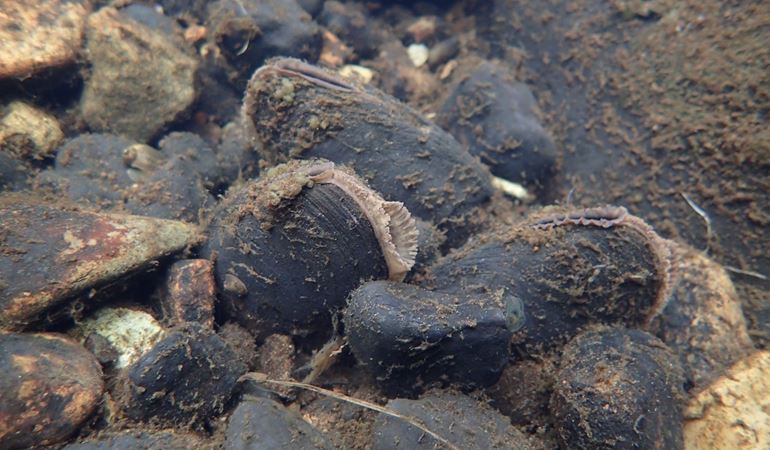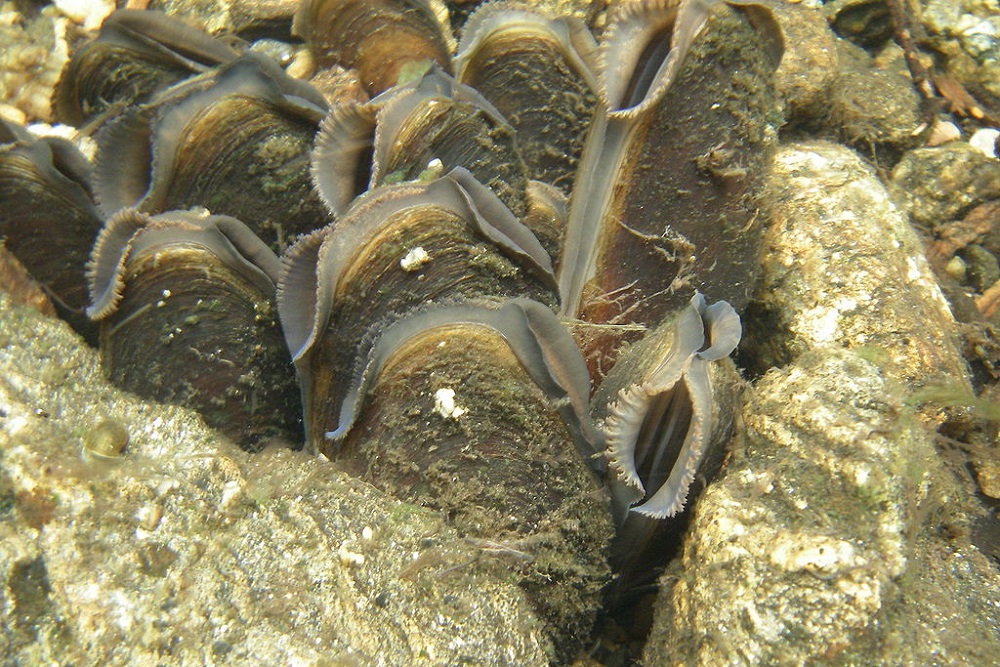Watch: Pearl mussel breeding programme set to boost species on the brink

Approximately 120 young freshwater pearl mussels are being released into a protected location in a Gwynedd river to provide a much needed boost for the critically endangered species.
The mussels have been raised in a controlled environment at Natural Resources Wales’s (NRW) captive rearing facility near Brecon and are being released into the river following extensive habitat restoration works during 2022.
The location, which is protected to prevent poaching, is one of the last remaining pearl mussel populations in Wales. The species is classified as functionally extinct due to the small numbers and age of the mussels left.
During 2022, over 1000 tonnes of boulders, cobbles and fresh gravel was carefully re-introduced into the river to increase valuable habitat for pearl mussels.
Initially, the mussels are placed into the river in purpose-built concrete silos with filters to allow them to draw water. Release locations are carefully chosen to protect the mussels from both low and high flow conditions to maximise their chances of survival.
Complexity
After being released, NRW will undertake a regular monitoring programme to assess how the mussels are growing and surviving in natural conditions.
John Taylor from NRW, who has overseen the captive breeding work said: “Freshwater pearl mussels have a complex lifecycle, and begin their development as parasites on the gills of fish, before dropping off and burying in the gravel of river beds. Research has shown that it is this first stage of the life cycle where the mussels are struggling to survive.
“We’ve been working to culture juvenile freshwater pearl mussels at our captive rearing facilities for many years, but in the last 10 years techniques have really advanced and we’re successfully rearing thousands of mussels over the age of five years.
“The captive breeding programme is essential in the short term as it will allow us to prevent the extinction of this species in Wales and provide a much needed boost to dwindling, old populations which are not viable. The restoration of habitats and water quality in the medium to long term will allow this species to flourish in the future and once again become a key contributor to a healthy ecosystem.”

Thomas Doherty-Bone, NRW’s freshwater pearl mussel recovery officer said: “Releasing our captive bred pearl mussels is a big step, but critical for the future survival of the species.
“Sadly, in Wales there has been no evidence of young mussels surviving in the wild for the last 40 years, so both habitat restoration and rearing programmes are now essential.
“It’s a privilege to be part of such a landmark project to save an iconic species which is critically-endangered and at risk of being lost from Wales forever.”
The pearl mussel project is funded by the Welsh Government’s Water Capital Programme, which supports a number of environmental priorities including river restoration, metal mine remediation, fisheries and water quality.
Following the success of the river restoration in 2022, last month NRW began work to restore freshwater pearl mussel habitat at a second location in Gwynedd.
It is hoped that this could become another ‘ark’ location to release more mussels from the hatchery in the future.
Support our Nation today
For the price of a cup of coffee a month you can help us create an independent, not-for-profit, national news service for the people of Wales, by the people of Wales.






Brilliant work.
Have they got a webbed cam on them…
Only in Gwynedd is there a river clean enough, I bet…